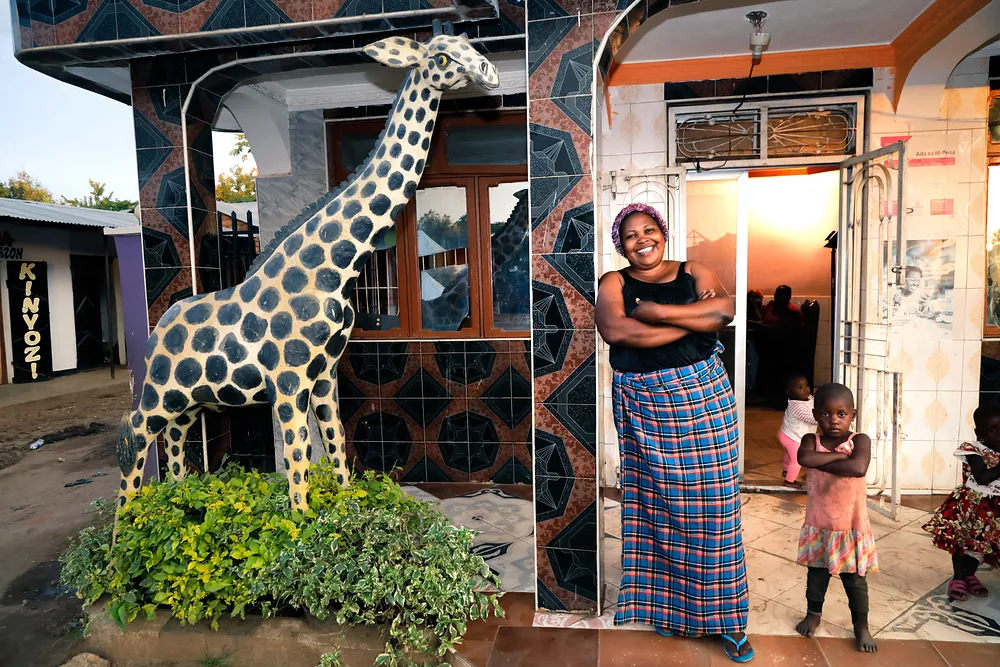They All Come Here to Eat
Elizabeth Mwangosi opened the only restaurant, catering to gold miners in a remote village in Ifumbo, Tanzania. Facing the challenge of keeping drinks cold for her tired customers, she discovered Devergy's solar fridges with an affordable credit-based payment system in 2018. The fridge has significantly boosted her business, attracting over 100 customers a day.

Six years ago, Elizabeth Mwangosi had a business idea. She left her family in the bustling town of Mbeya, in southwestern Tanzania, and moved four hours north to a small, remote village where people had begun to mine gold. There in Ifumbo, Mwangosi opened the only restaurant for miles around, decorating it with pink curtains and concrete animals. Almost immediately the restaurant thrived, with droves of hungry miners showing up to eat her delicious chicken stew, chapatis, and roasted goat.
But still, Mwangosi had a problem; mining is hard, sweaty work, and her tired customers were looking for cold drinks as well as food. She used blocks of ice in cooler boxes to keep water and soda cold for them. But this was proving to be expensive.
I would buy ice blocks for 25,000 to 30,000 shillings a day (around $12), which is a lot of money,” she remembers. I had so many customers during that time. But then all my money would be wasted in buying ice blocks that melted away.”
In 2018, Mwangosi learned about a company called Devergy offering solar fridges, with a credit-based payment system that made them affordable. After a two million shilling down payment, she signed up to pay 139,000 shillings a month for her fridge. This expense can be tricky to manage during the low season, she says, when the rains prevent the miners working. But during the high season, when she has over 100 customers a day, the fridge is worth its weight in gold.


When I add a new crate of soda, or even ten of them, they easily sell out, says Mwangosi. “And the fridge helps advertise my shop for its cold drinks, so business goes well. It is attracting more and more customers. When evening falls they all come here to eat. She says when it’s hot, she makes over two million shillings a month in drink sales alone. In terms of operating costs, the fridge costs half as much as she used to spend on ice.
Mwangosi would like to eventually use these profits to build her business. She wants to set up a shop, and dreams of buying another fridge to store fish. But for the moment the money goes toward school fees for her young children, a luxury Mwangosi couldn’t always afford.
There was a time my children wanted to study, but I wasn’t able to take them to school, she explains. I want to expand my business, but I feel it’s important to let my children study first. So two of my kids are going to school because of the benefits the fridge has brought us.
Mwangosi hasn’t forgotten her ambitions.
I know that the fridge will help me more in future, she says with conviction. I have already seen its advantages.
***
About the Global LEAP Awards
The Global LEAP Awards is an international competition to identify and promote the world’s best off-grid appliances, accelerating market development and innovation. This unique programme has evolved into a trusted global brand that serves as the de facto source of accurate, actionable information about the quality and energy performance of off-grid appliances, with support from Power Africa, UK aid, Energising Development, Powering Agriculture, and USAID, and in partnership with the Efficiency for Access Coalition which is co-chaired by the IKEA Foundation and UK aid.